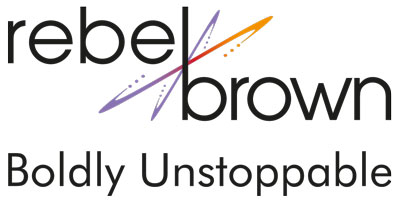As enterprise organizations move to build their own quantum workforce, the market faces a serious skills gap.
Given the challenges discussed here, what can organizations do to begin to educate and train their own quantum experts now, to be prepared to capture quantum value tomorrow?
As with most things involving information technology, there are two main options; build it or buy it.
- Build your own organization by educating your own set of quantum experts. The challenge is the time it takes to learn quantum skills from ground zero. The training and hands on experience demanded by quantum takes years for every individual. Plus, organizations still need access to quantum expertise to guide these maturing teams. And any way you slice it, this is a time consuming and expensive approach.
- Buy your organization: If skilled experts were readily available, this would be the ideal short-term solution. Since that’s not the case, choosing this approach means an expensive endeavor as quantum experts. Today’s experts can choose their positions from the highest bidders, and the price is high. Even if you have the budget available, there still may not be enough quantum resources in the market to fulfill your team needs.
Partnering with vendors for their quantum experts is another buying option. This tends to be expensive and creates the risk of proprietary vendor lock-in as these experts leverage the vendor’s own unique quantum methods.
Regardless, if you choose to buy the quantum expertise you need from external sources, you will eventually need to educate your own teams. Be sure to include that time and expense as part of your workforce planning.
A Blended Approach
Given all the market dynamics, the most efficient strategy for building a quantum workforce seems to be a phased and blended version of the build vs. buy approaches. This includes an integrated plan to both build and buy the quantum workforce resources your organization needs.
- You can acquire quantum expert(s) as coaches and role models for the talent you select to educate with quantum skills, as you move forward to
- Educate key individuals that are currently in innovation centers, have backgrounds appropriate to quantum computing, e.g., HPC, mathematics, physics, algorithmic and complex computational programming and more. These technical skills offer a baseline to accelerate quantum learning.
As we’ve discussed, there are a variety of talent pools to consider for the key resources you’ll hire.
- The market in general. Aside from traditional recruiting options, there are recruiting organizations focused solely on quantum computing. Commercial and educational organizations with quantum experts are another pool to consider. Quantum vendors are a potential source, as the vendor market is in high flux in these early stages of quantum.
- Vendors or partners. One option is to partner with a vendor, consulting firm or other offering quantum experts for consulting training and more. This option gives you the flexibility to hire for the term and specific skill you need, then release that talent and move to other needs as your team evolves.
- Quantum Centers. Leading universities offer Quantum Centers in partnership with the US government and quantum computing vendors. These centers are leading the charge in quantum innovation and offer quality programs designed to introduce and train our next generation workforce on quantum computing paradigms, hardware and software development and the necessary fundamentals for powering quantum value. You can find a comprehensive list of universities and research centers here.
Luckily, educational resources on a variety of quantum skills are rapidly coming to market for employees and employers. These resources offer educational programs that meet the different levels of required quantum specialization.
Universities and Quantum Centers
Universities across the globe are offering quantum educational programs. Many larger universities have also created Quantum Centers of Excellence, providing access to diverse quantum hardware, software, and technologies for educational and testing purposes. Leading vendors are partnering with these centers to support their educational needs. These universities offer critical courses and hands-on experience to develop the next generation of quantum workforce.
Click here to review a full list of global universities with quantum centers or quantum groups.
Quantum curriculums focus on majors including:
- Physics, specifically Quantum Physics and Quantum Information
- Hardware engineering, such as device physics, cryogenics, system design
- Software, including both software for quantum computers and support software for traditional computers.
- Mathematics, including algorithms and complexity theory.
Other learning opportunities include:
- Books. And games
- Quantum simulators, for learning how to program and run quantum computers.
- Real quantum computers available via the cloud from a variety of vendors
- Software development platforms from a wide range of vendors
Vendor Education Programs
Most quantum vendors are offering educational programs to the market. Examples for IBM, Google and Microsoft are discussed below. At this point in time, every significant vendor of quantum computing and technology is offering educational programs.
Fundamental Steps for Building a Quantum Workforce
Training and educating a quantum workforce for an enterprise is a new endeavor for all.
Following are some fundamental steps to layout the process for your best results.
- Define Clear Objectives: Identify the specific skills and roles needed for your enterprise. This might include quantum algorithm developers, quantum hardware engineers, or quantum information theorists, among others.
- Online Learning: Encourage employees to undertake online courses and certifications. Several platforms offer courses in quantum computing, like edX, Coursera, and Udemy, or specific from quantum computing companies like IBM’s Qiskit or Microsoft’s Quantum Development Kit tutorials, among many other vendors’ offerings.
- Workshops and Training Programs: Arrange workshops or training programs with experts in the field. This not only helps in learning but also helps in networking and getting to know the industry’s latest trends and developments.
- Higher Education Collaboration: Partner with universities and research institutions. This collaboration could involve sponsored research, internships for students, or guest lectures from industry experts.
- Internal Research and Development (R&D): Encourage R&D within the company. Allow your workforce to experiment, learn, and develop their quantum computing skills. This could involve internal hackathons, innovation labs, or simply dedicated research time.
- Hire Experts: Bringing onboard seasoned professionals in the field can expedite the training process, as they can share their experience and knowledge with the rest of the workforce.
- Continuous Learning: Quantum computing is evolving rapidly. Every day or week new, critical innovation emerges. Enterprises must offer their quantum workforce a culture of continuous learning, encouraging and supporting their employees as they stay relevant with the latest developments in the field.
- Create a Learning Environment: It’s important to create an environment where employees feel encouraged to learn quantum skills. This could involve offering incentives for completing training programs, providing time for self-study during the workweek, or creating a platform where employees can share what they’ve learned with others.
- Industry Conferences and Webinars: Participating in industry conferences and webinars is a good way for employees to learn from and network with leading experts in the field. It’s also an effective way to meet experts who may contribute to your quantum workforce.
- Simulators and Real Quantum Computers: Since quantum cpm[putters are still scale-challenged, a wide range of vendors offer QC software snd simulators for trials and experience. These simulators are cloud-based, offering straightforward access to the platforms you and your teams need to begin to explore the quantum computing paradigm and power. This practical experience is critical for future quantum adoption.
The Bottom Line
I can’t say it often enough. Quantum computing is a complex and rapidly developing field. But it is not ready for production work. And it won’t be in the near term. That’s good news, since it will require a significant amount of time and resources to effectively train a quantum workforce.
You can choose to wait and see, at the risk of losing competitive advantage when quantum computing begins to deliver production-class value, which may be sooner than we all think. Or you can be prepared to take advantage of the stages of value quantum computing will deliver with a logical step by step plan to acquire, educate and utilize a select quantum workforce.






